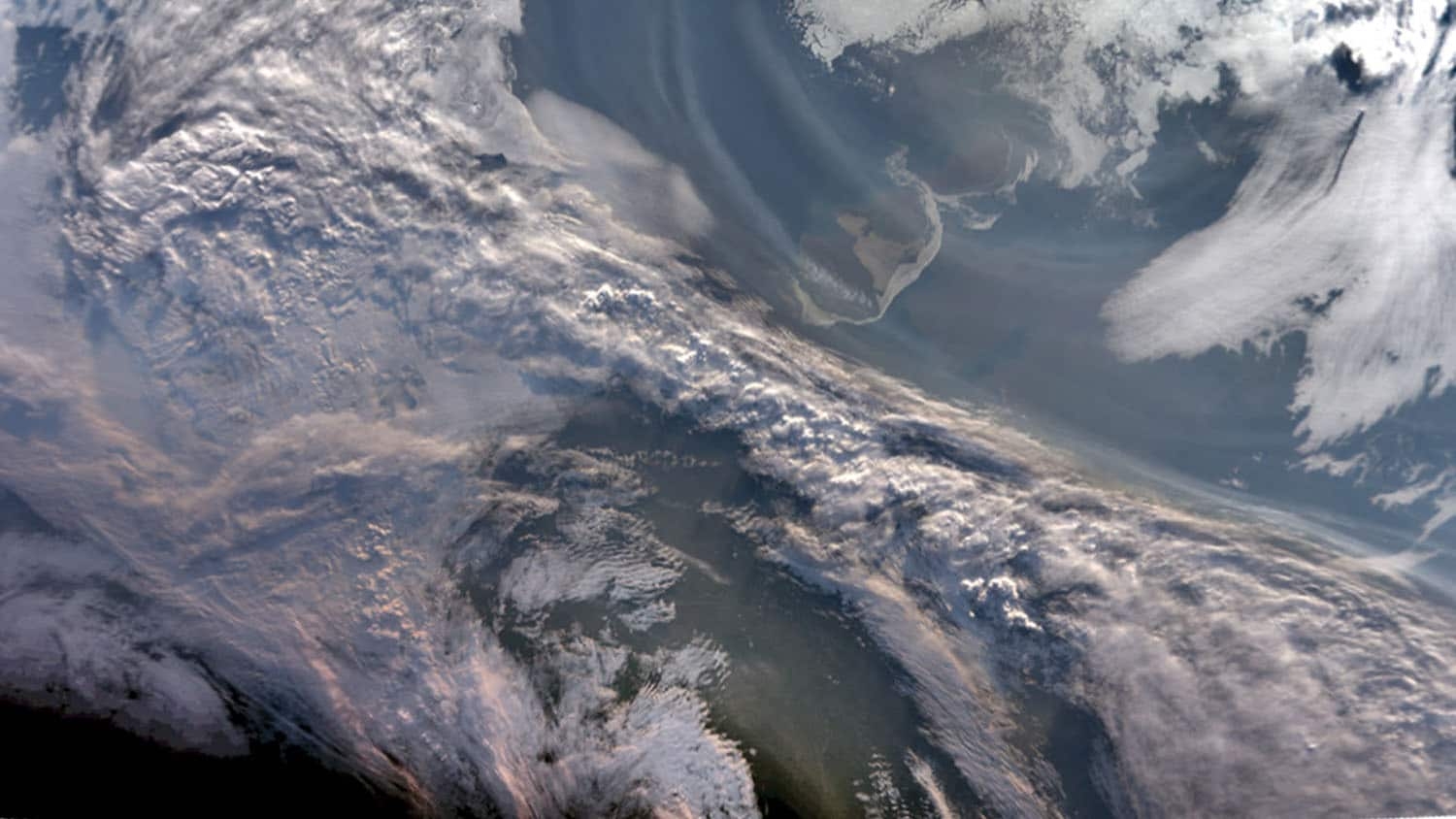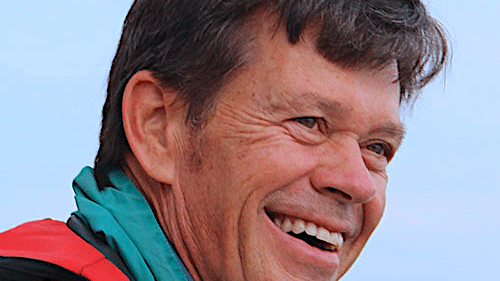A Work in Progress: Virtual Field Trips for BIO 181
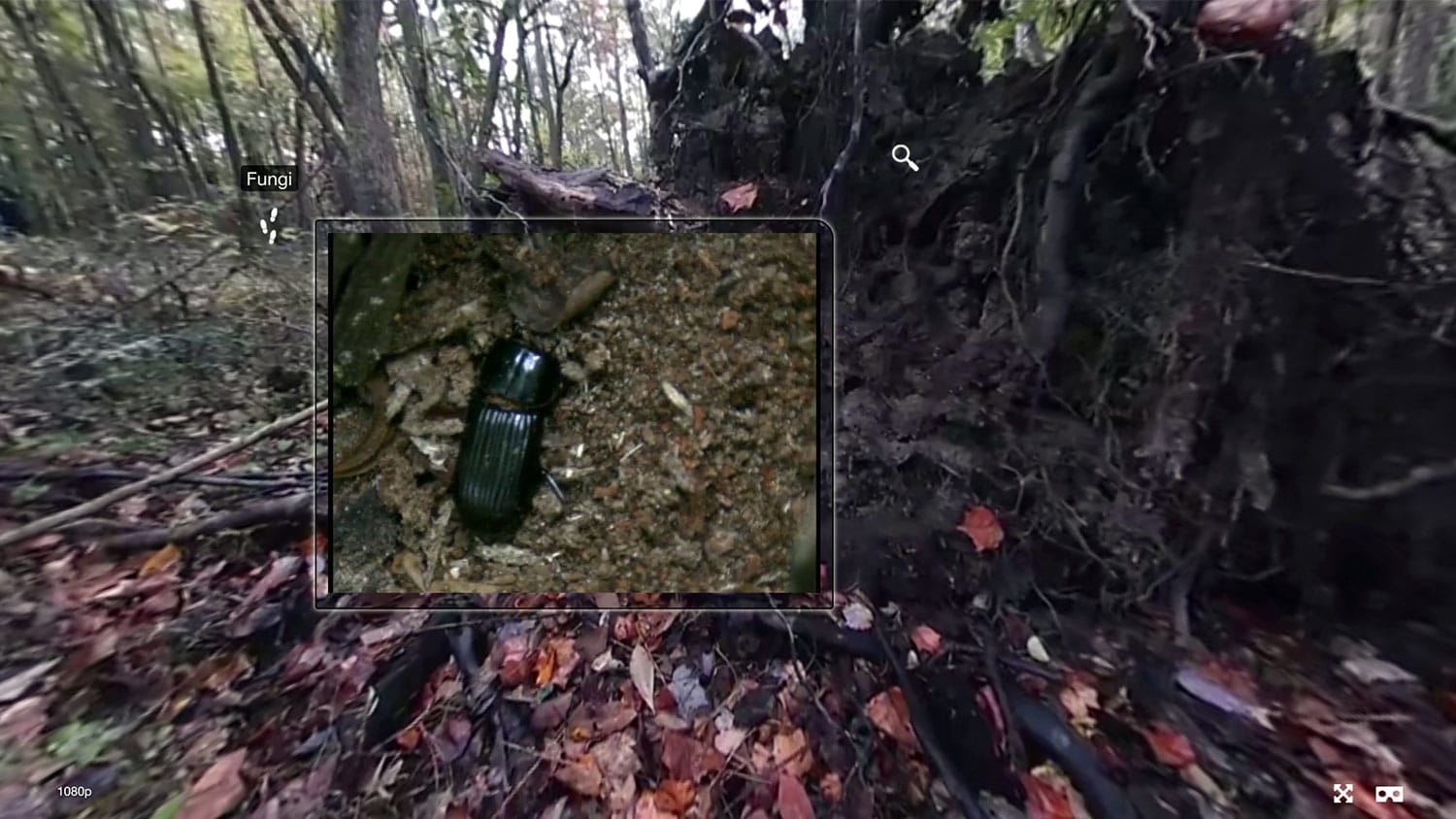
Biodiversity within North Carolina ecosystems and 360° videos come together to create virtual field trips in an Exploratory Grant project currently in progress at DELTA.
A team of DELTA staff and Biology faculty Miriam Ferzli, Lisa Paciulli and Betty Black are working to immerse students in field-based experiences where they find and observe organisms in their natural habitats as part of Introductory Biology: Ecology, Evolution and Biodiversity (BIO 181).
About the Project
According to project lead and Director of Instructional Innovation Services David Howard, the goal of the project is to give students an immersive experience with real-world environments through the development of interactive field trips using 360° videos. These videos provide students with an opportunity to experience various ecosystems in North Carolina without having to visit them.
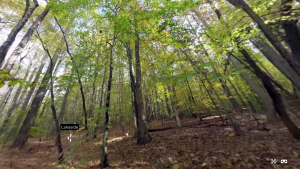
DELTA’s Exploratory Grants offer faculty a way to address a unique instructional challenge. In BIO 181 the challenge was creating a way for students to experience each environment without having to take students to the many habitats being studied.
Field trips are not conducive to online learning environments and pose challenges for face-to-face classes as well. The potential for bad weather and financial limitations make it hard for faculty members to take students from campus to learn about each organism.
Virtual field trips using 360° videos provide an alternative to the traditional field trip and create an environment that is closer to how it feels to go there in person. “The natural movement of the environment plus the natural sounds provide a more immersive experience than just a photo,” said Howard.
The project in BIO 181 is aimed to help students understand food webs for diverse environments by finding organisms and learning about what those organisms eat and what eats them.
About the Videos
The instructors have a library of short videos on a variety of organisms, but they needed an environment to plug the videos into to create the immersive experience they desired.
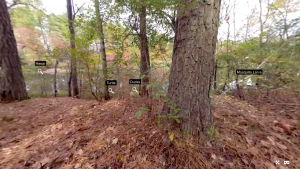
The first environment the DELTA team and Biology instructors visited was Laurel Hills Park in Raleigh. To start the process, they looked around for the best places to capture based on where a student would be able to find organisms that the instructors had videos of. Many 360° videos were recorded and narrowed down to five different environments within the ecosystem. The project team also captured regular videos of any organisms they found.
According to Howard, the team is using Viar360 to put the 360° video nodes into to create movement paths between each environment and to add hotspots where an organism can be found.
The Laurel Hills Park video is the first to be completed in the project. The interactive videos allow students to wander around and find 26 embedded videos of organisms to learn more about them in their natural habitats.
What’s Next?
Moving forward, the DELTA team and the instructors will be venturing on-site to shoot more 360° videos of various environments. The next location is Shackleford Banks, a barrier island on the coast near Beaufort, North Carolina. The island will provide students with a look into a coastal habitat and the animals and plants found there. Since the island is also a wildlife reserve, the team hopes to capture a variety of organisms to include in the 360° videos. The third ecosystem after Shackleford Banks will be Merchants Millpond, a swamp area.
According to Howard, the initial 360° video interactives work best on desktops and laptops but are more limited on headsets. The team will be working to improve the headset experience in the next steps of the project.
“We will be figuring out how effective the videos will be for students to navigate through each one,” Howard said. He noted the videos need to be extensive enough to show off the environment but also contained enough to be easy to navigate.
This post was originally published in DELTA News.
- Categories:
